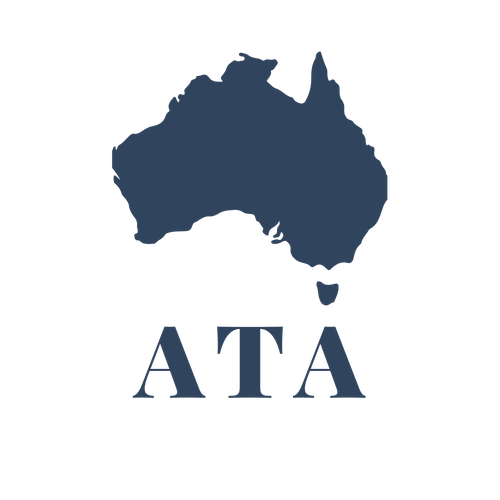The death of ScoMo’s cash ban is welcome
Government legislation that would have outlawed cash payments for goods and services exceeding $10,000 AUD to or between businesses has just been set aside and referred to a committee that won’t report back until February 2020. Although this setback for the bill is a notable victory, it should be seen as part of a wider pattern amongst world governments to push for cash’s demise for the sake of their own interests.
France, Portugal, Spain and Bulgaria have already outlawed certain cash transactions to and between businesses, supposedly in the name of cracking down on the black economy. The private sector has also made moves to reduce the utility of cash. In recent years, some United States. and multinational banks have restricted cash withdrawals and deposits.
Unfortunately for ordinary citizens, such moves won’t affect the criminal and terrorist syndicates that governments claim they want to target. Instead, they force us to subject our personal financial dealings to the scrutiny and oversight of government bureaucrats. They also mean that citizens will need approval from a bank before starting any transaction valued at over $10,000, with only a few exceptions.
It’s tempting to shrug about such moves. Sure, most of us can’t imagine undertaking a transaction worth that much in dollar bills, so we don’t necessarily see how that would affect us. But once it takes effect, there will be little to stop the threshold from slipping down drastically to $5,000 or $3,000, with lower thresholds already in effect elsewhere in the world.
Although the Australian bill would have exempted individual-to-individual transactions, like buying a used car through Craigslist, such exemptions could also disappear over time and are likely to have been motivated more by political expediency to increase the likelihood of the bill’s passage, than a genuine commitment to protecting private dealing.
Those who don’t comply would have faced up to two years in jail or whopping fines of up to $25,200. Ironically, the terrorist and criminal syndicates, which the Australian government said they were targeted, would’ve been unlikely to ever pay this price. They don’t obey the law now and certainly won’t adhere to a new ban. The European Commission came to the same conclusion in a report last year, which found that “restrictions on payments in cash would not significantly prevent terrorism financing.”
The burden of such restrictions then instead falls upon law-abiding businesses and individuals who are already required to disclose large cash transactions to the Australian Transactions Reports and Analysis Centre or AUSTRAC. These businesses would’ve been forced to comply with an additional layer of bureaucracy by having to move payments to the digital system through a bank. This means that Australians would’ve been forced to pay for financial services that they otherwise wouldn’t use, while also giving the banks transaction data ripe for harvesting.
It’s already in the interest of banks to nudge customers into the digital payments system, as this allows them to reduce costs by culling staff otherwise involved in handling the withdrawal and deposit of cash funds, like tellers. Cash payment restrictions mean more unearned business for banks that doesn’t require them to innovate or provide better services in order to attract customers.
And we should all question the wisdom of providing the government and banking sector with further influence over our lives. Australia’s recent royal commission into its banks revealed a long backlog of dubious behaviour, such as banks charging people for advisory services they never intended to provide and knowingly charging fees to dead customers.
And while some might argue the obsolescence of cash is inevitable and that most customers simply prefer the convenience of the digital economy, citizens and businesses still deserve the freedom to choose between different ways to conduct business and trade. That should include digital payments, cash payments and alternative options, such as cryptocurrency.
Remember: cash doesn’t crash. When the Visa system crashed last year, millions of people and businesses were left stranded. But cash doesn’t require tracking by data centres or a digital middleman. That’s why there’ll always be a niche for consumers and businesses who still conduct cash transactions. In several U.S. cities and jurisdictions, this has even prompted laws against businesses refusing to engage in cash transactions.
All these reasons for remaining wary about future attempts to restrict cash use in Australia are prescient. However, few have thus far raised the issue of such restrictions contributing to idea discrimination and censorship. Visa, Mastercard and PayPal have already taken the Orwellian step of working with extremist groups, like the far-left Southern Poverty Law Center, to ban those with political opinions they find disagreeable from conducting transactions. Any move that forces us to conduct business or trade through these companies will entrench their market share as well as their ability to damage or destroy the lives and livelihoods of those who commit the crime of “wrongthink.”
Those who stand to benefit from intruding or extending their influence over our lives come from both the private and public sectors. We, therefore, must not be sold on the lie that cash’s demise is inevitable and should be hastened through compulsory restrictions. And the deferral of the Australian government’s latest attempt to force the complete transition to digital banking doesn’t mean that the battle is over for good.
This article appeared in the Spectator on 22 September 2019.
